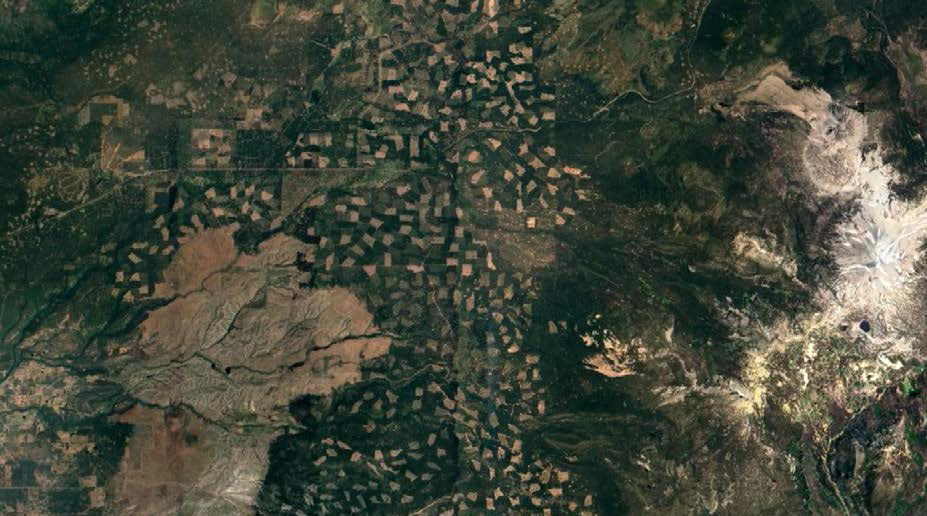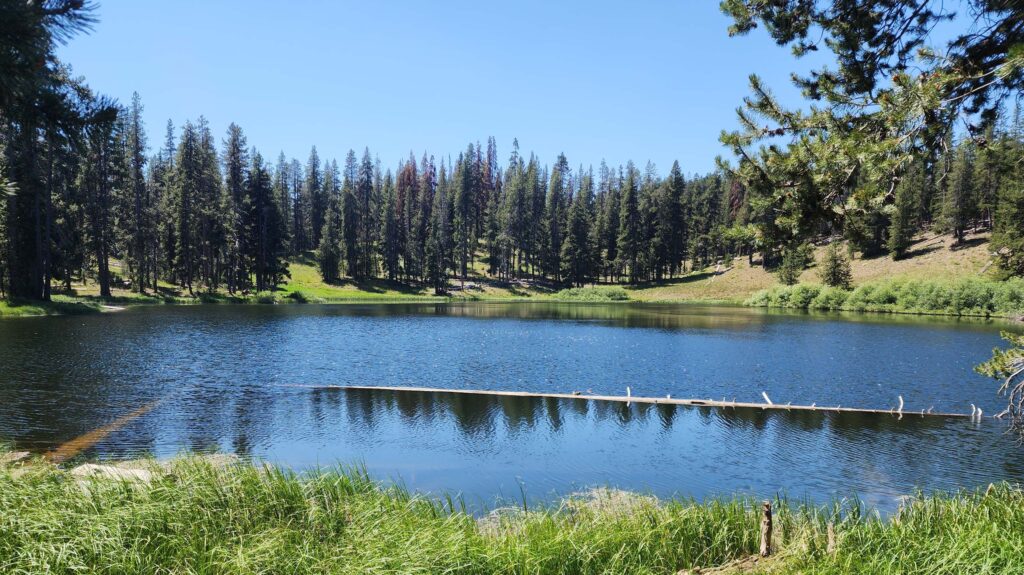
A Gaping Hole in California’s Climate Action Framework:
Big Timber
A newly released report, Climate Impacts of Logging and Wood Products in Shasta and Siskiyou Counties, California, written by the Senior Economist for the Center for Sustainable Economy, John Talberth, Ph.D., focuses on two California counties to expose a critical gap in California’s climate strategy: the unregulated greenhouse gas emissions (GHG) from the State’s logging industry. Despite California’s reputation as a climate leader, California does not monitor GHG emissions from the logging and wood products sector and has no plans to do so. Erroneously assuming that logging-related emissions are offset by future forest growth or the substitution of wood products for more carbon intensive materials, California ignores the fact that logging practices emit far more carbon than the natural forests they replace, significantly contributing to climate instability. Dr. Talberth underscores the urgency:
If California wants to preserve its reputation as a climate leader, it is essential for Governor Newsom and other elected officials to reject false narratives that allow Big Timber to overrun the state’s forestlands with intensive logging activities that generate significant greenhouse gas emissions while making the land more susceptible to fire, floods, and heat waves.
This report estimates that logging and associated road building in Shasta and Siskiyou counties alone emit over 4 million metric tons of CO2 equivalents per year—comparable to the annual emissions from 883,000 gas-powered passenger vehicles. The report calculates that these activities are likely to generate between $487 million and $1.4 billion dollars in climate damages each year, an amount that far exceeds any revenues generated by logging and wood products. Despite this, the State has yet to implement regulations that would account for and curb these emissions.
Despite its stated intention to achieve carbon neutrality by 2045 and growing support for climate restoration, the State of California does not report or regulate greenhouse gas (GHG) emissions from industrial logging activities. This is because logging-related emissions are simply assumed to be climate neutral—offset by forest growth elsewhere or in the future or by substitution of wood products for more carbon intensive goods.
Both assumptions are inconsistent with science and climate policy. Compared to the natural forests they have replaced, landscapes dominated by clearcuts, logging roads and timber plantations store and sequester less and emit far more carbon. As such, GHG emissions associated with intensive logging activities play a key role in keeping GHG concentrations in the atmosphere far above pre-industrial levels.
This report was contracted by the Battle Creek Alliance of Manton, a Shasta Environmental Alliance-supporting organization. Funding was aided by SEA, We Advocate Thorough Environmental Review (WATER), Shasta Group of Sierra Club, and the Shasta Chapter CNPS. All of these groups will help distribute this report to organizations and elected officials in an effort to change policy regarding GHG emissions created by the logging and wood products industry.

Sáttítla National Monument Supported in Assembly and Senate
The proposed Sáttítla National Monument (Medicine Lake Highlands) was overwhelmingly supported when it went to vote in the California Senate (37 to 0) and the Assembly (74 to 0). This included a yes vote from our local legislator, Megan Dahle.
National monument status still has to be declared by President Biden, and that will require emails and letters of support from local individuals, organizations, and politicians to help push this to victory. Shasta Environmental Alliance (SEA) and Shasta Chapter CNPS have been working with state CNPS, Cal Trout, Trout Unlimited, CalWild, and other groups led by the Pit River Tribe to gather letters of support. Individuals can sign a petition of support by going to this website: https://www.protectsattitla.org/take-action. It will only take a few minutes; it will really help if we can get overwhelming local support.
Local groups that have already sent in letters of support include Mt. Shasta Audubon, Friends of the Redding Eagles, Sierra Club, CNPS, Women’s Health Associates, North State Climate Action, Ghost Pine Native Plant Nursery, Horsetown-Clear Creek Preserve, Trout Unlimited, We Advocate Thorough Environmental Review (WATER), Battle Creek Alliance, Democratic Central Committees of Shasta and Siskiyou Counties, many fishing guides, and Shasta County Democratic Women’s Club. Many other groups have agreed to sign on, but we are still waiting for their letters. If you belong to a church, club, nonprofit, business, or any other group in the local area, we encourage you to ask for their help in writing and emailing letters of support. Send a copy to SEA at david@ecoshasta.org and we will forward it to Senator Padilla’s staff, which is tasked with taking a packet of support letters to President Biden.
For further conservation news and activities, be sure to check out SEA’s September 2024 Newsletter! ~David Ledger, Conservation Chair
